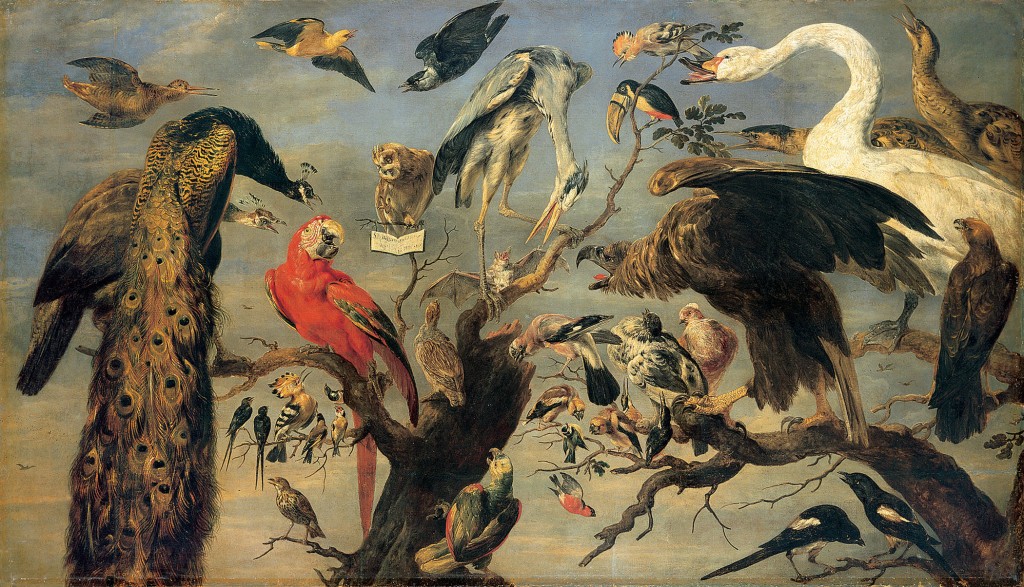…The world was not only imaginatively comprehensible, it was benevolently ordered. It is true that, ever since Copernicus and Galileo, the earth could no longer be regarded as the center of the universe; the music of the spheres was stilled. But God presided every instant, through the invisible filaments of gravitation, over the perfectly ordered harmony of the planetary motions.

—Of all the regrettable cultural forces that Darwinism helped unleash, perhaps the most surprising and seemingly unlikely is its role in sparking the creation of modern occultism. Charles Darwin himself could not have been less interested in the topic. But no attempt to assess the scope of his legacy can properly leave out the muse-like role his theory played in the thinking of Madame H.P. Blavatsky (1831-1891), who in turn was largely responsible for setting the agenda for modern occult interests, including the cult of Aryanism which bore its own poisonous fruit in Nazi Germany.
… Yet it always has to be repeated at the beginning of a discussion like this that the purpose is not to blame Darwin but merely to explore the largely unintended consequences of his idea.
Read more: http://blog.beliefnet.com/kingdomofpriests/2010/03/darwin-at-the-mountains-of-madness-evolution-the-occult.html#ixzz2EkoceMpT—Image:http://arthistory.about.com/od/from_exhibitions/ig/Rubens–Van-Dyke–and-Jordaens/23-Frans-Snyders-Concert-of-Birds-1630-50.htm
And if the earth was not the center of the universe, man was still emphatically the center- the end and purpose- of life on earth, a life which had issued, fully formed in all its variety of fish and flesh and fowl, directly from the hands of the Creator, to be subject to a man quickened into life, as in Michelangelo’s famous fresco, by the outstretched finger of God: “fill the earth and subdue it; and have dominion over the fish of the sea and over the birds of the air and over every living thing that moves upon the earth.” A characteristic treatise published in 1833 was entitled “On the Power, Wisdom, and Goodness of God as Manifested in the Adaptation of External Nature to the Moral and Intellectual Constitution of Man.” It would be hard to think of a neater inversion of the Darwinian theory.
In harsher climates and in times when man’s control over nature was more precarious, this doctrine often needed supplementation. The fall was necessary to explain the tiger, and men wondered whether there were insects in Eden. By the eighteenth century, however, nature was sufficiently tamed tobe idealized, at least by those who did not themselves labor on the land, and educated men were sufficiently leisured and urban to be sentimental about it. The eighteenth century was the heydey of the cult of a benevolent and edifying nature, while the Fall receded more and more into the theological background.

—So let’s highlight Smith’s contribution to public understanding of why the Darwin debate matters. His recounting of terrorist and other heinous acts by animal-rights extremists (even grave-robbing!), his exploration of the wicked views of “personhood” theorist Peter Singer, author of A Darwinian Left and the manifesto Animal Liberation — these tell us about the leading edge of what you might call the animalist view, equating humans with animals.
Professor Singer, bioethicist at Princeton University, assesses the worth of an individual living creature by cognitive measures — rationality and self-consciousness. Merely being human confers no special right to life on a creature. In Singer’s hands this idea become a license for murder:
A chimpanzee, dog, or pig…will have a higher degree of self-awareness and a greater capacity for meaningful relations with others than a severely retarded infant or someone in a state of senility. So, if we base the right to life on these characteristics, we must grant these animals a right to life as good as, or better than, such retarded or senile human beings.
Read more: http://blog.beliefnet.com/kingdomofpriests/2010/03/if-the-intelligent-design-side-in.html#ixzz2EkrhKuJU—Image:http://www.tumblr.com/tagged/david%20teniers%20the%20younger
ADDENDUM:
(see link at end)…Unfortunately, it’s precisely the philosophical foundations of decency that are undermined by the Darwinian perspective. If taken deeply to heart, Darwinism erases the distinction, the right of protection, that a human being earns simply by being human. After all, there’s nothing special about belonging to our species over any other. All the species are part of a continuum of life bubbling up from history without guidance, purpose or meaning.
The respect in which such ideas are held in prestige society can’t help but have a morally corrosive effect that trickles down and outward to the rest of the culture. When they are honest with themselves, Darwinists admit this. In his book, Smith quotes Richard Dawkins, who entertains a fond daydream in which scientists find a living human/chimp hybrid, able to breed with both species and thus finally proving that human beings are just another kind of animal:
We need only discover a single survivor, say a relict Australopithecus in the Budongo Forest, and our precious system of norms and ethics could come crashing about our ears. The boundaries with which we segregate our world would be shot to pieces.
Read more: http://blog.beliefnet.com/kingdomofpriests/2010/03/if-the-intelligent-design-side-in.html#ixzz2EkqypoLo





 COMMENTS
COMMENTS